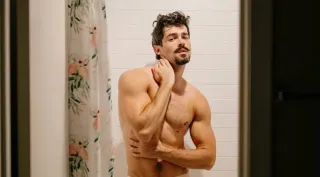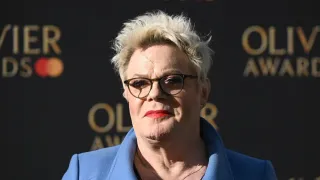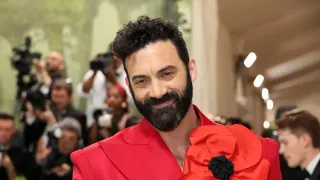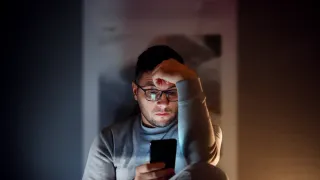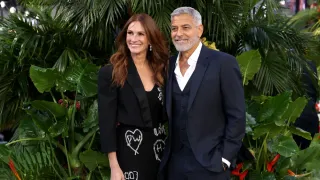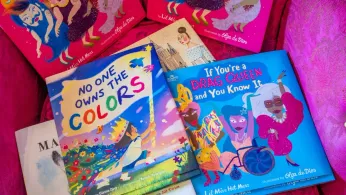
8 hours ago
Viral Video of Lesbian Couple Reacting to LGBTQ+ Kids’ Book Section Sparks Debates
READ TIME: 3 MIN.
A brief video filmed in a Barnes & Noble bookstore has swept across social media this week, showcasing a married lesbian couple’s candid reaction to a prominently displayed section of LGBTQ+ books for children during Pride Month. The couple, both self-identified lesbians, can be seen thumbing through titles such as "Bye Bye, Binary", "The Gay BC’s", and "Love Makes a Family", reacting with visible surprise and, at times, discomfort at the inclusivity and scope of topics covered—even for the youngest readers. One remarks, “We’re gay, but this is crazy,” as she flips through "The Gay BC’s", highlighting entries for “aro” (aromantic), “ace” (asexual), and “intersex” as examples of content she finds unexpected or advanced for a baby or toddler audience .
The clip quickly drew attention across platforms like TikTok and Instagram, where reactions from queer viewers were far from unanimous. While some LGBTQ+ individuals echoed the couple’s surprise—questioning whether such advanced topics are age-appropriate—others defended the presence of these books as essential, especially for families with diverse identities or experiences. One TikTok user commented, “At worst, some of the books are cringe, that’s it,” while another added, “M is for marriage. Which is now legal and we’re hoping it stays that way” .
Some users argued that the inclusion of words like “intersex” should not be controversial, and drew parallels to the recent rise in anti-transgender rhetoric, suggesting that internal criticism could fuel external backlash. “This is exactly how anti-trans hate train started,” wrote one commenter, warning against gatekeeping or distancing within the community .
The bookstore display featured a variety of books—some introducing concepts like non-binary identities, others offering simple affirmations of family diversity. While the couple’s comments focused on their perception of certain topics as “pushing it” for babies, other social media users highlighted the importance of representation for children who may have LGBTQ+ family members, or who are themselves exploring their identities .
As one Instagram user put it, “For some families, this is useful in explaining to their young kids why their aunt or cousin is living ‘differently.’ If it’s not useful to your own family, you don’t need to buy it and read it to your kids. Pretty simple” . Others pointed out that children’s books covering topics like autism or adoption have long existed to help families start important conversations, and that LGBTQ+ topics are no different in that regard.
Unsurprisingly, the video also drew criticism from right-wing commentators, who seized on the couple’s discomfort to support broader arguments against LGBTQ+ visibility in children’s media. However, the more significant discourse has taken place within the queer community itself, raising questions about generational shifts, evolving language, and the complexities of representation.
Some younger LGBTQ+ viewers suggested that discomfort with terms like “aro” or “ace” may reflect a generational gap, with older community members less familiar with newer identity labels. Others questioned whether the bookstore’s Pride display—assembled for a single month—might unintentionally make LGBTQ+ topics appear more exceptional or awkward, rather than normalized as part of everyday diversity .
The viral moment has become a flashpoint for broader conversations about how—and when—LGBTQ+ themes should be introduced to children. For some, the presence of these books is an overdue acknowledgment of queer families and identities; for others, it prompts questions about age-appropriateness and cultural readiness. As one user summarized: “Children usually learn best through stories, so it just feels awkward in a way,” suggesting that the method of introduction can matter as much as the message itself .
As Pride Month displays come down and the viral video’s impact lingers, the conversation continues—both about the best ways to foster inclusion for LGBTQ+ children and families, and about the value of open, honest dialogue within the community itself.
